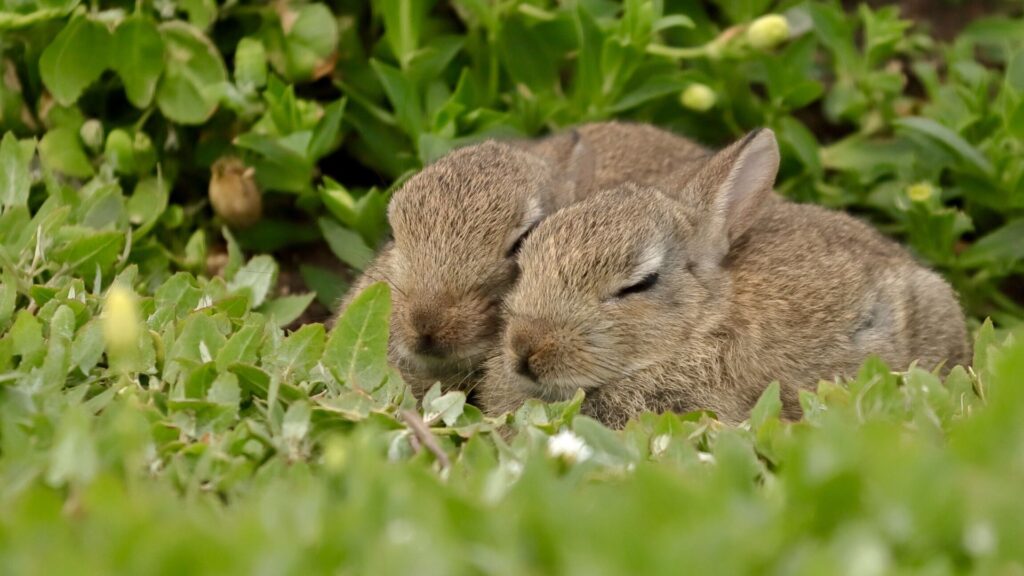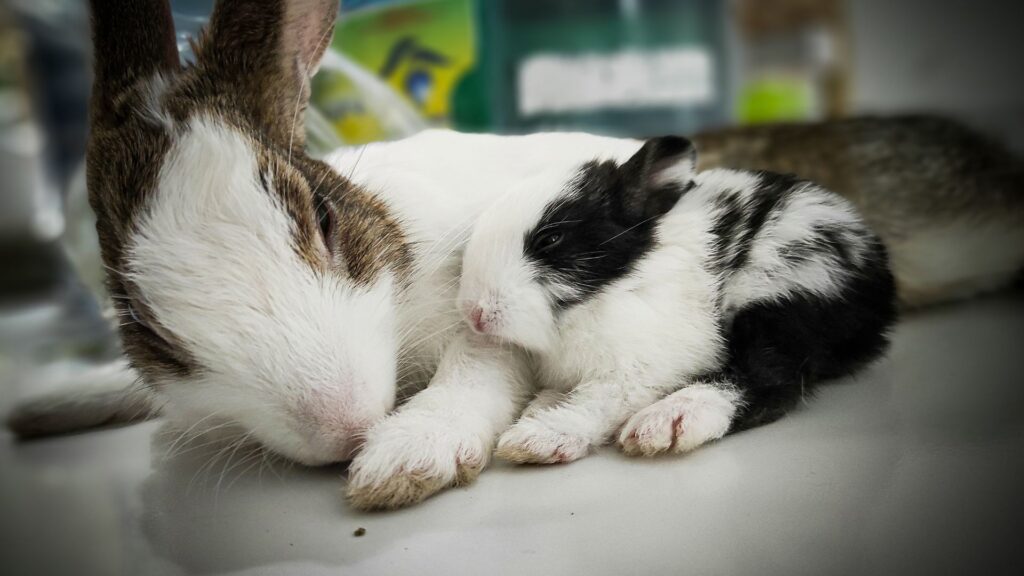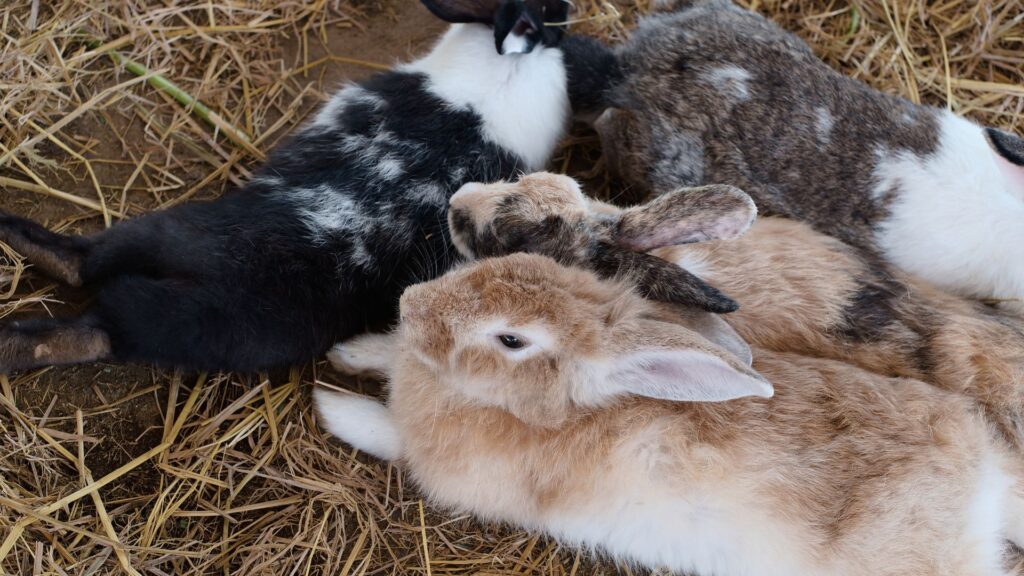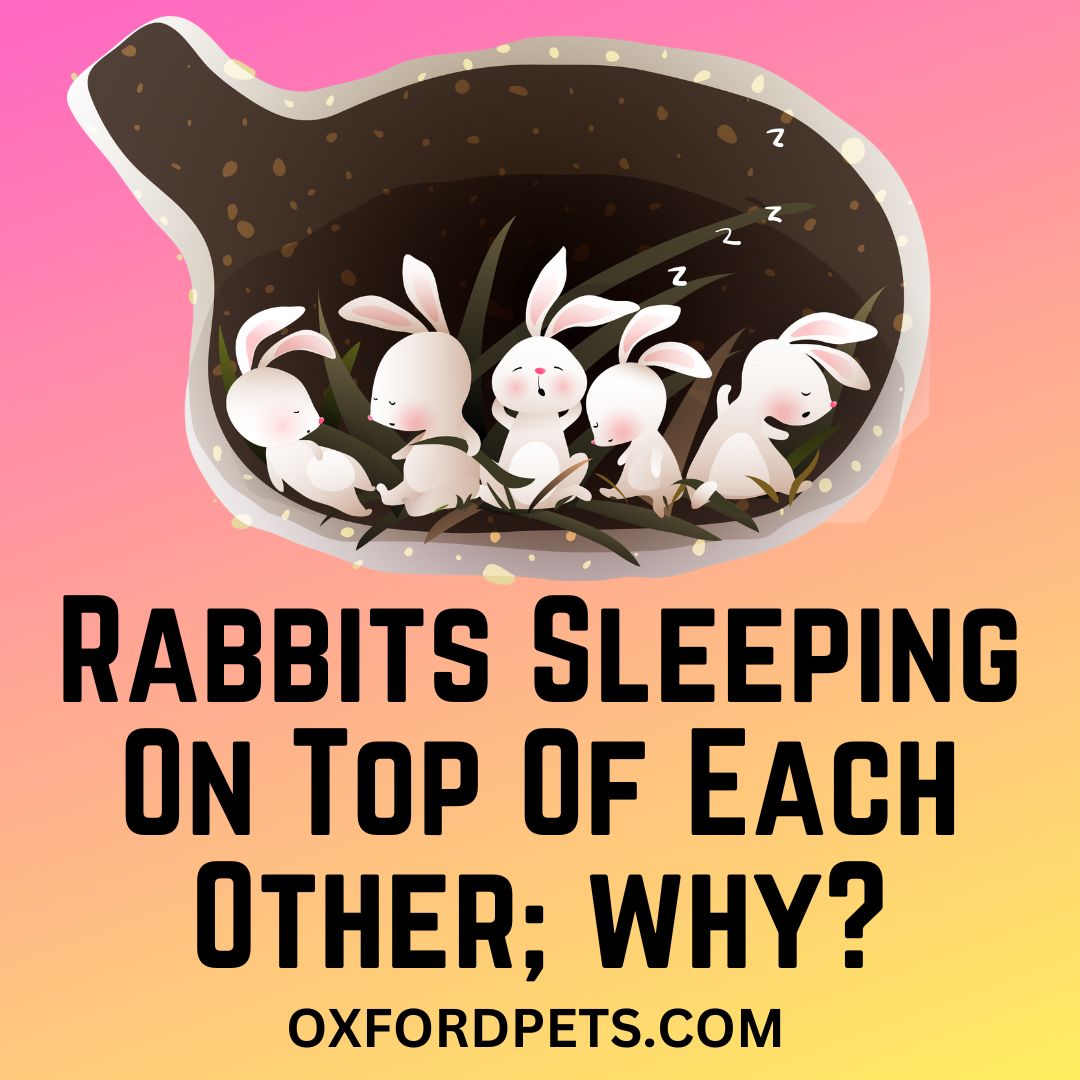Rabbits are captivating animals that are recognized for their adorable looks and peculiar actions. One specific conduct that often draws the attention of rabbit enthusiasts and owners is the tendency for rabbits to sleep on top of each other. Initially, this behavior may appear strange or uncomfortable, but there are actually several explanations for why rabbits partake in this activity.
Throughout this article, we will see various reasons why rabbits sleep on top of each other, in addition to any potential implications that may arise from this conduct. Grasping why rabbits exhibit particular behaviors can assist us in delivering optimal care for our beloved pets and guarantee their contentment and well-being.
Contents
4 Common Reasons Of Rabbits Sleeping On other Mates
Rabbits are social creatures that have a natural inclination towards companionship with other rabbits.
Seeping on top of each other is a natural and instinctive behavior for rabbits that is critical for their physical and emotional well-being.
Here are most important reasons why rabbits sleep on top of each other are

- Warmth and Security
The primary reason for rabbits to sleep on top of each other is for warmth and security. By snuggling with each other, rabbits can share body heat, which helps them regulate their body temperature and conserve energy, particularly in cold weather.
In the wild, rabbits tend to live in large groups to shield themselves from predators. Sleeping together is a way for rabbits to provide each other with a sense of security. Domestic rabbits, although not facing the same dangers as their wild friends, still have a natural instinct to seek comfort and safety in numbers.
- Rabbits Are Willing to Reproduce
Rabbits have a natural instinct to reproduce, and one way they express this is by engaging in sexual behavior, which can include laying on top of each other. This behavior is more common between a female and a male rabbit.
While it’s natural and not a cause for concern, it’s important to monitor the rabbits during this activity to ensure the male rabbit isn’t causing any harm to the female rabbit.
In some cases, rabbits may engage in rough or aggressive behavior during mating, which can result in injury. If you notice any signs of distress or discomfort in your rabbits, it’s best to separate them and seek veterinary attention if necessary.
- The Alpha Male Dominance in Bonded Pair
Rabbits engage in various behaviors to assert their dominance over one another, including laying on top of each other. This can occur during bonding, as the alpha rabbit establishes their position by mounting and humping the other rabbit, regardless of whether they are of the same or opposite gender. The dominant rabbit may also lay on top of the other rabbit to remind them of their position.
It is important to note that this behavior is normal during the bonding process, and there is no need to intervene unless the bottom rabbit appears uncomfortable or the dominant rabbit tries to hump the other’s face.
Interrupting this behavior every time it occurs can prevent the rabbits from full bonding and establishing their relationship.
Understanding the reasons behind rabbit behavior can help us provide the best possible care for our pets and ensure their well-being.
- Social Bonding and Interaction
Sleeping on top of each other promotes bonding between rabbits, allowing them to establish a stronger social connection. When rabbits sleep in close proximity to each other, they release pheromones that help create a sense of familiarity and comfort.
letting Rabbits Lay On Top Of Each Other: is it Ok?
Indeed, as mentioned earlier, rabbits can lay on top of each other for above reasons, which are to show dominance or to have sex. If your rabbits are hurting each other while engaging in this behavior, it’s important to intervene and separate them.
However, if they are not causing harm to one another, it’s best to let them be as it helps establish their relationship and hierarchy. In the case of sexual activity, it’s also best not to interrupt them, as it is a natural behavior for animals to reproduce.

Although sleeping on top of each other is a natural and instinctive behavior for rabbits, there are some potential concerns that rabbit owners should keep in mind.
- Risky Of Injury
One of the primary concerns is the risk of injury, particularly if the rabbits have different sizes or ages. The larger rabbit may accidentally harm or injure the smaller rabbit, leading to serious health issues. Similarly, if one rabbit is sick or injured, the other rabbit may unintentionally worsen their condition by sleeping on top of them.
- Territorial Fight Trigger
Another concern is the potential for fights or territorial behavior. While sleeping together can promote bonding, it can also lead to conflicts over territory and resources, which may result in stress and aggression.
- Disease Spread
Sleeping on top of each other in unsanitary conditions can lead to skin irritations, infections, and other health issues.
To reduce these potential concerns, rabbit owners should ensure that their rabbits have sufficient space to sleep comfortably and separate them if necessary. Additionally, rabbits should be kept in a clean and hygienic environment to prevent health problems. Regular check-ups with a veterinarian can also help identify any underlying health issues that may affect the rabbits’ sleeping behavior.

How To Know If Your Rabbits Like Each Other?
Apart from laying on top of each other, there are several other signs that indicate your pet rabbits like each other. These signs include ignoring each other, showing interest in each other, sharing, playing together, sleeping together, grooming each other, and observing the social hierarchy.
If you observe any of these signs, it means that your pet rabbits have formed a bond and like each other. However, if you don’t see any of these signs, it may mean that they don’t like each other yet. Give them some time, and they will eventually warm up to each other.
Final words
To summarize, rabbits sleeping on top of each other is a natural behavior that fulfills various needs, such as warmth and bonding. Nevertheless, it is crucial for rabbit owners to be aware of potential concerns related to this behavior, such as the risk of injury, fights, and health problems.
Providing rabbits with adequate space and maintaining a clean environment are important factors in ensuring their comfort and safety. Regular veterinarian check-ups can also assist in identifying any underlying health issues that may impact their sleeping behavior. Understanding the reasons behind rabbits’ behavior is an essential step in providing the best possible care for them and ensuring their happiness and well-being.
I hope you enjoyed the article. I will be back soon with more interesting and informative pieces of writing. Till then, stay connected. Thank you.
Frequently asked questions
Bonded rabbits engage in many activities together, such as eating, sleeping, grooming, and exploring their surroundings. These bunnies spend hours cuddling and sleeping together to ensure each other’s safety and comfort.
Bonded rabbits show affection by grooming each other, and they might display similar behavior towards their owners by licking them. Additionally, rabbits may lick their owners to indicate that they desire to be petted.
Dominant rabbits demonstrate their authority through demanding grooming at will, mounting, chasing, circling, barbering fur, and hoarding food or toys. Rabbits determine their dominant and submissive status amongst themselves.
Rabbits demonstrate affection through nuzzling, head butting, or rubbing against their owners as a request for attention. Petting or cuddling them is a way to reciprocate their feelings. When rabbits rub their faces against their owners, they are sharing their scent profiles and show that they consider their owners as friends.
Rabbits can live happily in male/female, female/female, male/male pairings, and larger mixed groups. The most natural and, therefore, easiest pairing is male/female. However, in the wild, rabbits tend to live in male/female pairs and will sometimes remain partnered for life.
